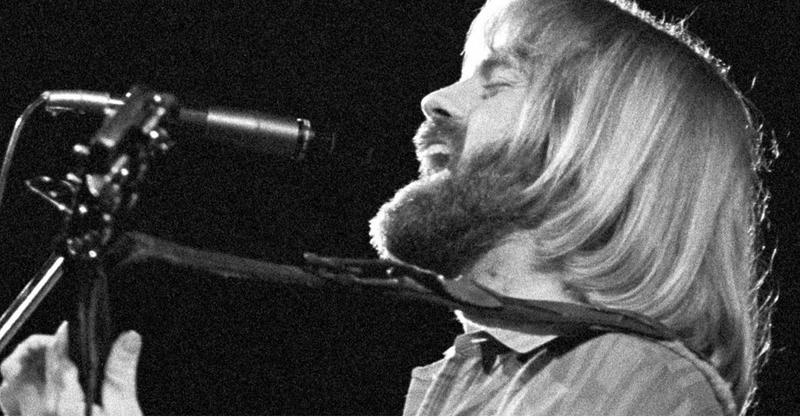What You Didn't Know About Michael Martin Murphey's 'Wildfire'
By | September 11, 2018

In 1975, singer and songwriter, Michael Martin Murphey's "Wildfire" became his biggest chart-topping hit. The haunting folk ballad that had fans calling “Wildfire” like the song’s chorus, while also listening closely to the lyrics to unravel the story of the young girl and her pony tragically lost in a blizzard. As the song climbed to the top of Billboard’s Adult Contemporary Chart and peaked at #3 on the Billboard Top 100, fans became obsessed with the tune and the story of Wildfire. How the song came to be is almost as interesting as the ghost story it tells. Here is what you didn’t know about Michael Martin Murphey's “Wildfire”.
Wildfire Came To Murphey In A Dream

While many of the song’s fans believed that the story was based on an actual event, in reality, the entire song came to Murphey in a dream. In the mid-1970s, Murphey was working with his friend, Larry Cansler, on The Ballad of Calico for country star Kenny Rogers. A college student at UCLA, Murphey would drive down to Cansler’s apartment to work on the album, often sleeping on the floor after a long work session. One night, Murphey dreamt of the song in its entirety. He woke up energized and knocked on Cansler’s bedroom door, saying, “Come help me with this song.” In less than two hours, “Wildfire” was complete.
Did Murphey Subconsciously Recall An Old Native American Legend?

Murphey admits that he had often heard stories from his grandfather of Native American ghost horse legends. Stories of ghost horses are a common trope in Native American folklore, especially among tribes of the Plains and Southwest. Was it possible that Murphey was recalling these tales in his dream and subconsciously wove them into his song? He says yes.
The Lyrics Tell More Than A Ghost Story

Although many fans of the song are quick to call it a tune about a ghost horse and rider, the lyrics tell a deeper story. In the song, a homesteader expresses his disillusionment over farming and homesteading, which he calls “sodbusting.” As a form of escape, he thinks about a story he has heard about a young woman from Nebraska who died while searching for her beloved pony, Wildfire, which became lost in a raging prairie blizzard. Residents claim to see the ghost horse and rider roaming over the plains. Touching on issues of mental illness, depression, and suicide, the song notes that the depressed homesteader thinks only of joining the ghost girl and her pony Wildfire.
The Famous Piano Intro And Outro Of The Song Were Cut For Radio Play

Murphey’s “Wildfire” received critical acclaim for the piano music used as the intro and outro of “Wildfire.” This piece is inspired by Prelude in D-flat, Op. 11 No. 15, by the classical Russian composer, Alexander Scriabin. This arrangement adds to the mysterious and sad tone of the song. Sadly, the intro and outro of “Wildfire” were edited out for radio play. Only fans who bought Murphey’s Blue Sky – Night Thunder album got to hear the song as it was originally meant to be.
The First Audience For 'Wildfire' Was A Kitchen Staff

Murphey recorded “Wildfire” at the Caribou Ranch in Colorado’s Rocky Mountains. Afterward, Murphey and the producers thought the song sounded fine but wanted a second opinion. One of the producers said, “Let’s play it for the kitchen staff to see what they think”. The workers in the ranch’s kitchen were treated to an unexpected mini-concert. They all loved the song…and the fact that they got to hear the hit before anyone else.
“Wildfire” Can Be Seen As A Religious Allegory

Murphey was open about his deep Christian beliefs. He noted that the Book of Revelations in the Bible speaks of Jesus coming back on a white horse. Although “Wildfire” is rooted in the supernatural, Murphey says it can also be viewed as a religious allegory. The lost white horse, Wildfire, can be seen as a symbol for the Savior.
David Letterman Was Obsessed With “Wildfire” In 2007

In 2007, David Letterman, then the host of The Late Show, suddenly became obsessed with the song, “Wildfire”. Over the course of several weeks, he engaged in deep discussions about the song and its lyrics with The Late Show’s bandleader, Paul Shaffer. The discussions let to Letterman inviting Michael Martin Murphey to perform his signature song on The Late Show. Letterman called the song “haunting and disturbingly mysterious, but always lovely and melancholy.” As a result of The Late Show, the song enjoyed a brief resurgence.
